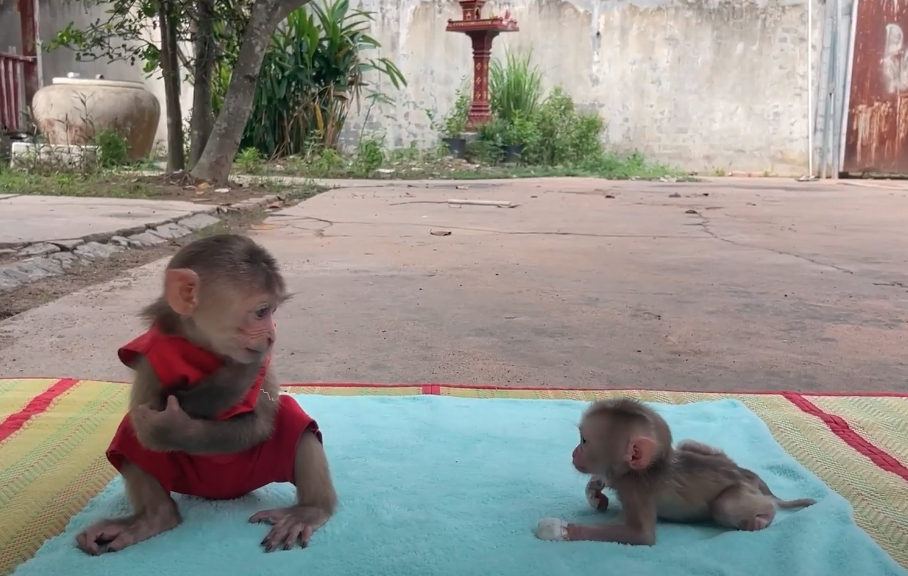
In the quiet corner of the rescue center, the peaceful air was suddenly broken by a series of urgent lip-smacking sounds. A tiny baby monkey sat on the floor, eyes wide and tail twitching, making soft but persistent noises. It wasn’t hunger or fear—this was a call. A playful, energetic call. He was trying to get the attention of his favorite older friend, TanTan.
The baby monkey had been trying all morning to invite TanTan to play. He bounced up and down with excitement, flapping his little arms and smacking his lips loudly—an adorable, yet alarmed-sounding gesture. To anyone watching, it looked like the little one was in a hurry, as if he couldn’t wait another second for some fun. The baby’s eyes sparkled, and his lips worked overtime, creating that sharp smack-smack noise again and again.
At first, TanTan, the older and slightly grumpy monkey, ignored him. He lay lazily on a wooden platform, pretending not to notice. But the baby wasn’t giving up. His lip-smacks became faster, more animated—an alarming little siren of cuteness.
Finally, TanTan lifted his head, gave the baby a side glance, and sighed. With exaggerated slowness, he rolled over, climbed down, and approached. The baby leapt with joy and gave one final, enthusiastic lip-smack—mission complete!
What followed was a whirlwind of chasing tails, swinging from ropes, and playful tumbles. The baby monkey shrieked with glee, while TanTan, although pretending to be annoyed, clearly enjoyed the chaos too. Their playful energy filled the room, proving once again how important these small social moments are for rescued monkeys’ emotional health.
That lip-smack—so small, yet so powerful—was more than a sound. It was a joyful alarm, a friendly alert, a sign of connection. And thanks to it, the baby monkey got exactly what he wanted: playtime with TanTan.